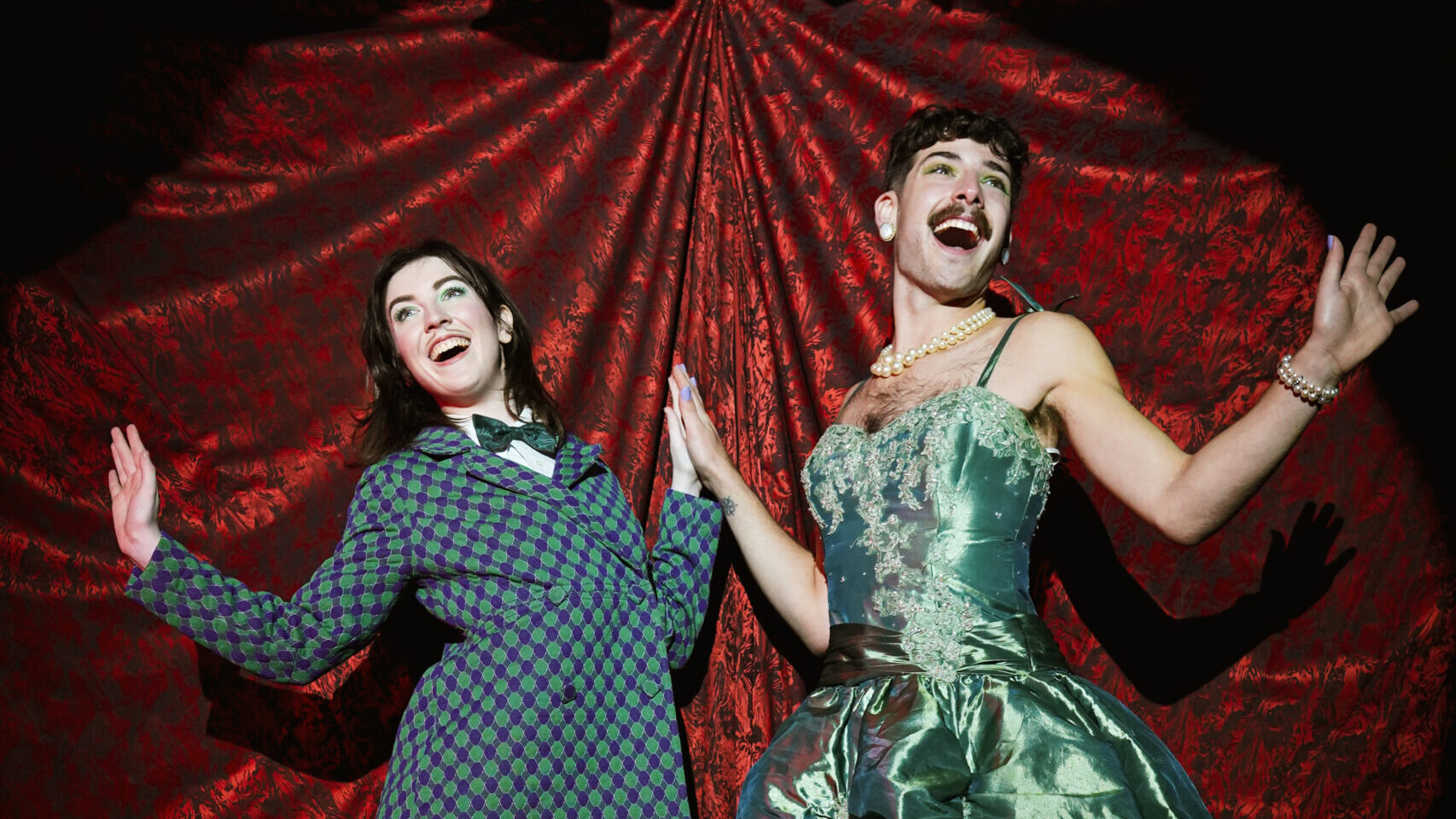I recently got a puppy. His name is Louis and he loves to play. Even when the weather is bad; even when he has peed in his pen; even when I’m crying about the state of the world, Louis grabs his favourite toy and wags his tail. He is joyous and silly. I’m in love.
In Delightfool, Jak Darling and Booth the Clown ask us, “When did we stop treating ourselves like puppies?”. The one-hour cabaret invites us into a literal whirlwind of play. They do this while grabbing their favourite toys and wagging their tails. It’s queer joy that asks us to be shameless.
The show starts with a little introduction to our stars and their campy genderbending. Booth the Clown is an abstraction of your problematic uncle. They swirl their masculinity in a way that transforms even the most disturbing machismo into something to giggle at. The more we question their manhood, the funnier the concept of ‘manhood’ becomes.
Jak Darling, on the other hand, gives us a damsel in denial. The closer the story gets to its climax, the more frantically they try to keep it together. Despite their collapsing inner world, Jak maintains an immaculate image of femininity. They are defined and constrained by their beauty. Their dresses get more and more luxurious, and our hearts continue to break for them. Between the two, the fragile face paint of gender starts to crack.
As we follow our hosts through their trials and tribulations, the show keeps its political cards up and on its sleeve. It’s a story that is undeniably 2024. On the surface, it treats us to songs about cold, damp flats and monologues about genderfluid platonic marriages. But it also gives us more subtle lessons in pleasure and joy. By leaning into the campy and cringe, our enjoyment becomes their political tool.
It doesn’t feel groundbreaking—and that’s because it isn’t. It nestles itself into the aesthetic of early 20th-century cabaret from the music and costume through to the gags and props. But sometimes the most comforting escape is a story we’ve heard before. An inside joke. A singalong. It’s often what we might call a ‘guilty pleasure’, but there’s nothing guilty about having fun. The hard truth is that to simply exist and be silly is also a political statement.
It feels indulgent to laugh at piss jokes and slapstick in a climate that seeks to erase our identities, but how can we weather the storm without these moments of joy? How can we ask to be taken seriously, if we’re not allowed to laugh at ourselves? Even at crisis point, Booth and Jak reach for silliness as a source of survival.
To be silly is to be vulnerable, and to be vulnerable is to be strong. That’s the need that Delightfool fulfils. It’s laughter as rebellion. It’s joy as an act of resistance. It’s connecting with our inner puppy, who’s craving playtime and a little treat.
Featured photo courtesy of Basement Theatre.



